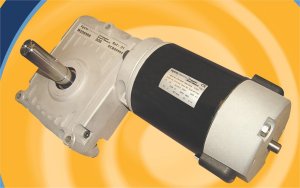Era ends as Crompton Electric Motors prepares to close
One of the UK’s longest-established motor manufacturers, Doncaster-based Crompton Electric Motors, is closing, with the potential loss of 237 jobs. The company, part of the global Tyco Electronics group, says that the business is no longer viable after losing a key account to an overseas supplier.
In a letter to customers, Crompton says that the factory has been running at a loss for several years as a result of price pressures from cheaper imports and, more recently, because of increases in material costs. Although cost reductions (including around 100 job losses over the past five years) had brought the company back to almost a break-even position in recent months, the loss of the key account has meant that sales have now fallen so low that the business is no longer viable.
Subject to employee consultation, the factory will be run down in phases starting from November, and is expected to close finally by May 2009.
"This is not a decision that we have taken lightly," says a spokesperson for Tyco Electronics, "nor is it a reflection on our employee’s performance, but one which has arisen as the result of a decline in demand for some motor products and an evaluation of future demand for this product line".
Tyco adds that it "would like to thank all their employees at the Doncaster site for their hard work and loyalty over the years". Regular employees will receive the standard Tyco Electronics severance benefits including statutory redundancy pay, notice pay if applicable, and outplacement services.
During the closure period, Crompton will continue to accept and manufacture orders for customers, although prices will rise by 7% after 1 October.

Crompton Electric Motors had been producing up to 600,000 single- and three-phase AC induction motors a year, in ratings from 5W to 1.5kW. In recent years, it also started to produce DC motors in ratings from 50–700W (such as the one shown above). Almost all of the company`s sales (96%) were to OEMs, with pumps being its largest market (accounting for 27% of sales), followed by business machines (16%) and HVAC equipment (15%). The bulk of Crompton’s business (72%) was in the UK, followed by France (8%) and Scandinavia (6.6%).
The company can trace its history back to Colonel Rookes Crompton’s original DC motors business formed in 1878, and the foundation of Brook Motors in 1904. In 1927, RE Crompton & Co merged with F & AE Parkinson to form Crompton Parkinson. which opened the Doncaster plant in 1946 to produce motors and light fittings. In 1967, Crompton Parkinson was acquired by Hawker Siddeley, which bought Brook Motors three years later, merging the businesses to form Brook Crompton Parkinson Motors in 1974.
In 1990, Hawker Siddeley added the GEC Electromotors small motors business to its portfolio, but the following year Hawker was itself acquired by BTR. In 1999, BTR merged its operations with Siebe to form Invensys and three years later the small motors business was sold to Tyco Electronics.
Tyco invested around £500,000 to expand into the DC motors business and to develop matching gearboxes. In 2005, it renamed the business Crompton Electric Motors. The company has continued to use the Crompton name under licence from Brook Crompton.





